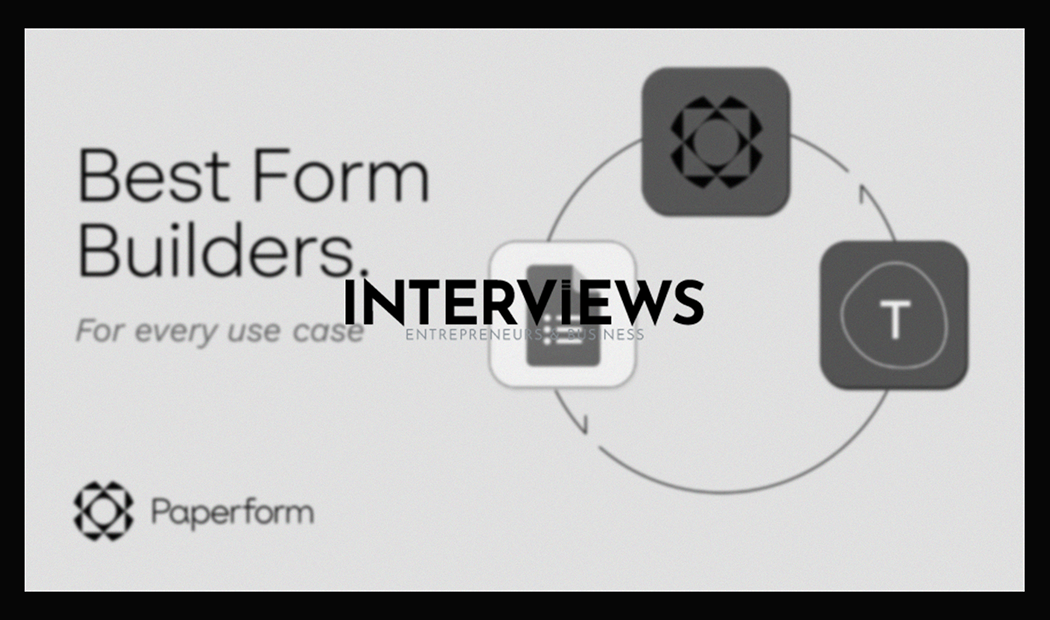Thinking Beyond Typeform? Formidable Form Builders to Consider
Typeform is visually appealing. It has a modern look that many admire. It makes surveys look artistic. It’s a customizable tool, ideal for CRM, marketing, and HR. It features logic jumps and AI tools. User-friendly tools help you create forms and manage data efficiently.
Typeform’s logic jumps allow forms to adapt based on user answers. This creates a more dynamic experience. It’s not just a basic survey tool. Startups and solopreneurs appreciate its blend of form and function.
Why Look Beyond Typeform? It’s Not All Rainbows and Unicorn Forms
However, some drawbacks exist. Typeform used to offer a generous free plan with 100 responses. Now it allows only 10 monthly. The sleek design comes with a steeper price.
There’s also a data integrity problem. Typeform doesn’t prevent multiple submissions from one user. This skews results and makes data less credible.
Though Typeform impresses visually, it may lack features compared to alternatives like WPForms that offer more for less.
Top Typeform Alternatives: Form Builders That Bring the Heat
Do not worry, form lovers. Many alternatives to Typeform exist. Each has unique strengths. Let’s explore some options.
FormAssembly: The All-Rounder Champ
For those seeking a dependable Typeform alternative, FormAssembly stands out. It is reliable and has robust features.
Google Forms: The Free and Familiar Friend
Google Forms is simple and free. It integrates well within the Google ecosystem. It is as easy to use as finding your keys.
- Pros: Simplicity and seamless Google integration are major benefits.
- Cons: Advanced features are lacking. Basic branding options do not impress. You also need a Google account.
Jotform: The Feature-Packed Powerhouse
Jotform is versatile and feature-rich. It handles everything from simple surveys to complex applications.
- Pros: There are many templates and integrations. You can drag, drop, and customize easily. Jotform includes features like conditional logic.
- Cons: For simple forms, Jotform may feel excessive. Typeform still excels in visual appeal.
SurveyMonkey: The Survey Specialist
SurveyMonkey has been around for years. It offers functionality beyond what Typeform provides, including HTML editing.
Feathery: The Seamless Integration Master
Feathery is for businesses wanting forms that integrate seamlessly into their products. It offers a smooth experience.
WPForms: WordPress Wizardry
If WordPress is your platform, WPForms is the ideal choice. It creates standard forms, fights spam, and embeds easily.
Notion Forms: The All-in-One Workspace Wonder
If you use Notion, Notion Forms is a must. It offers free, unlimited forms within your workspace.
Zoho Forms: The Free Feature-Rich Challenger
Zoho Forms is a strong free contender, similar to Google Forms but feature-rich. It’s ideal for those needing more than basic options.
Microsoft Forms: Office 365 Ally
If you prefer Microsoft tools, Microsoft Forms allows for easy survey creation within the Office 365 ecosystem.
Wufoo & ClickUp: Customization and Data Analysis Dynamos
Wufoo is great for customizable forms and reporting. ClickUp, known for project management, offers robust customization and data collection.
Feature Face-off: Typeform vs. Competitors – Let’s Get Specific
Jotform vs. Typeform: Versatility vs. Visuals
Jotform offers versatility and data analysis capabilities. It supports diverse forms and complex workflows for thorough data collection.
Typeform excels in user experience and visual engagement. It presents forms as conversational interactions, maximizing user participation.
WPForms vs. Typeform: Features vs. Price Tag
WPForms goes beyond standard forms, offering custom layouts and spam protection to easily embed into WordPress sites. Typeform usually lacks some features and has higher costs.
Feathery vs. Typeform: Seamlessness vs. General Use
Typeform is good for various needs but lacks Feathery’s seamless integration. If embedding forms for customer interactions is critical, Feathery leads.
HubSpot Forms vs. Typeform: CRM Integration Advantage
HubSpot Forms integrate directly with HubSpot CRM. This eliminates the need for third-party tools. It provides an advantage over Typeform’s external integrations.
Gravity Forms vs. Typeform: Form Style Flexibility
Gravity Forms offers traditional and conversational formats. Typeform focuses on conversational approaches only. This flexibility gives Gravity Forms an advantage in diverse requirements.
Formaloo vs. Typeform: Customization to the Extreme
Formaloo promotes 100% customization with brand logos and colors. While Typeform offers some customization, Formaloo allows complete creative control.
Google Forms vs. Typeform: Simplicity vs. Style
Google Forms excels with simple functionality and ease of use. Typeform focuses on attractive, customizable forms for visual impact and engagement.
Pricing and Free Options: Show Me the Money (or Lack Thereof)
Typeform’s Basic Plan is $29 monthly for 100 responses and unlimited questions. It has a free plan but lacks features.
Jotform provides a free Starter Plan with limits on forms and submissions. Google Forms and Notion Forms are entirely free with substantial features available at no cost.
Zoho Forms includes a free plan with basic options for smaller projects. WPForms has a free version called WPForms Lite, which is a fantastic no-cost option.
Microsoft Forms needs an Office 365 subscription to access its features, making it free only in that environment.
Anonymity: Keeping it Undercover
Typeforms prioritize privacy by default. They do not track geolocation unless personal info is requested. Respondents remain anonymous unless identification is solicited.
Key Considerations: Choosing Your Form Fate
Your choice between form builders depends on your needs. If user experience matters, Typeform is strong. For data analysis, Jotform excels. HubSpot Forms integrates well for CRM users.
If customization is essential, consider Formaloo. For WordPress forms, WPForms works well. For simple needs, use Google Forms or Notion Forms.
The best alternative to Typeform aligns with your specific needs, budget, and expectations for data collection. Explore options, test free plans, and find the right builder to meet your goals.




